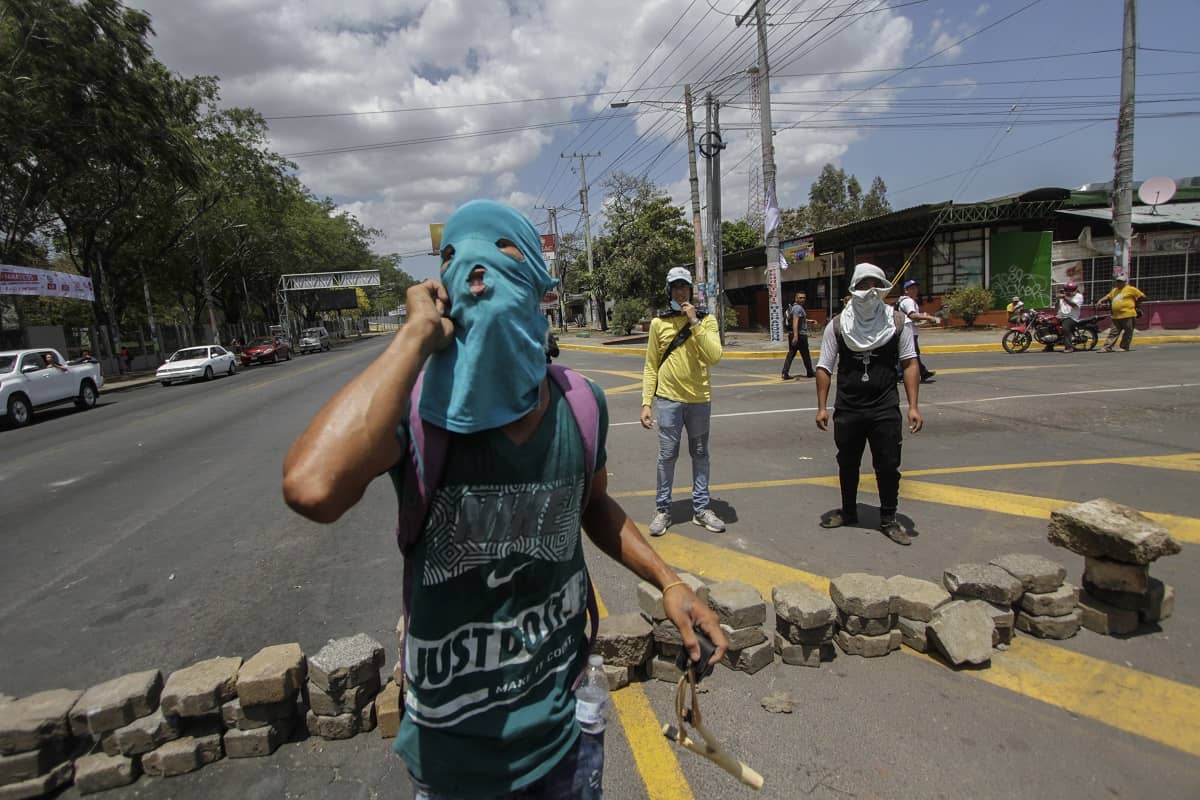Ongoing protests in Nicaragua caused renewed diplomatic tension between that country and its southern neighbor, Costa Rica, on Friday after officials in San José called on Managua to respect human rights and reconsider the closure of media organizations reporting on the protests.
The two countries have experienced border tensions in recent years, mediated by the International Court of Justice at The Hague.
Costa Rica’s response to a wave of protests in Nicaragua against public pension reforms did not sit well with Managua.
“We call for all human rights to be respected so there are no acts of violence, and above all so that all this can be resolved through peaceful means and dialogue,” said Christian Guillermet, Costa Rica’s director of foreign policy, on Thursday. He questioned the closure of four private television channels on Thursday as they reported on the protests. (Three of the four returned to the air on Friday.)
“Curtailing freedom of expression doesn’t contribute [to a positive resolution], so we call on the government of Nicaragua to… reconsider the closure of some media,” Guillermet said.
The Nicaragua Foreign Ministry responded in writing.
“The particularities of our internal policies and the circumstances in which our government takes state decisions are not concerns of the state or government of Costa Rica,” the note read.
It went on to criticize Costa Rica for “the discriminatory, denigrating, exclusive and often racist treatment” that Nicaraguan immigrants receive in Costa Rica.
San José did not respond.
Government reforms of the Institute of Social Security (INSS) prompted the protests; a protester and a policeman were killed in the Nicaraguan capital after demonstrations over pension reform turned violent Thursday night, officials said. The deaths came after protests by both opponents and supporters of a new law, which increases employer and employee contributions while reducing the overall amount of pensions by five percent, rocked the capital for a second day.






